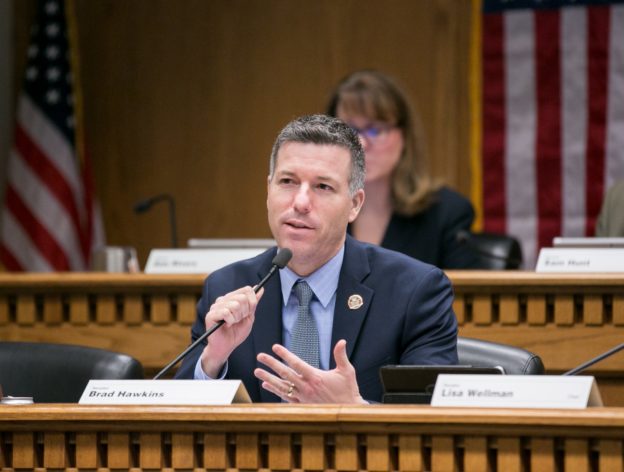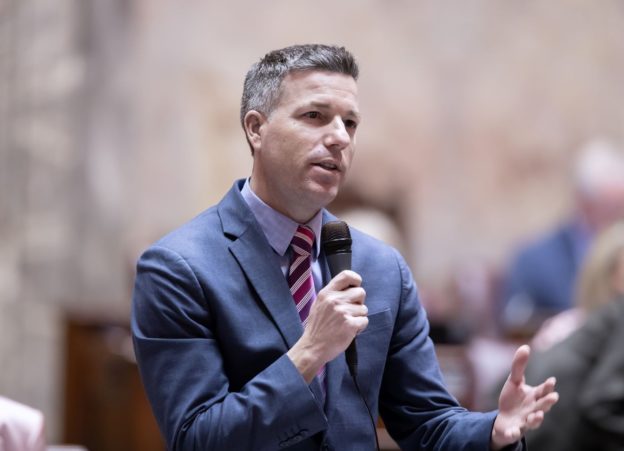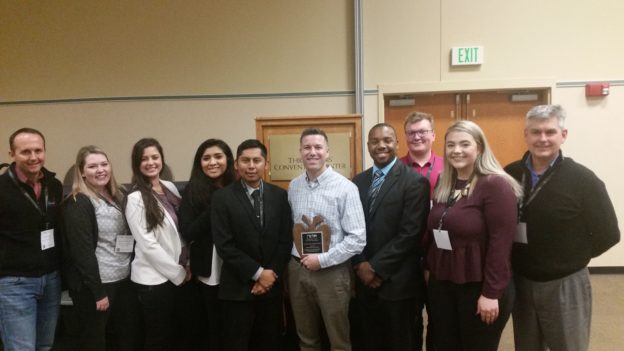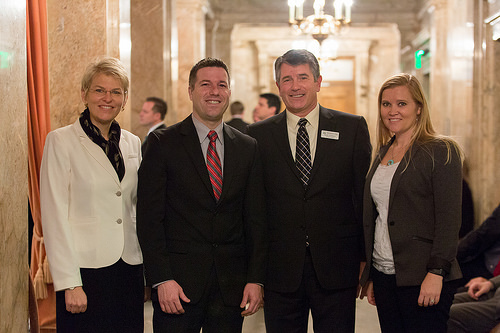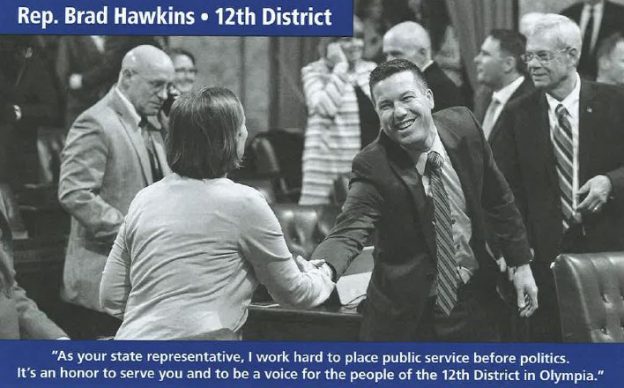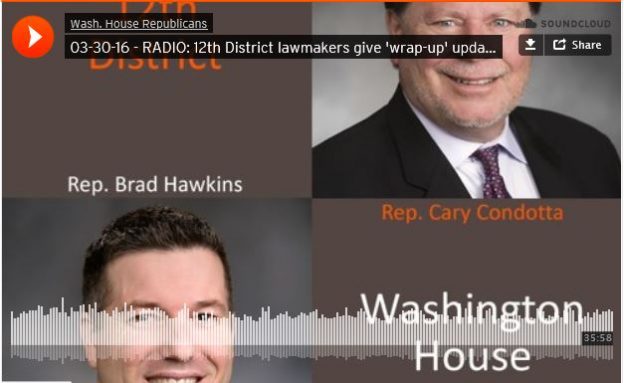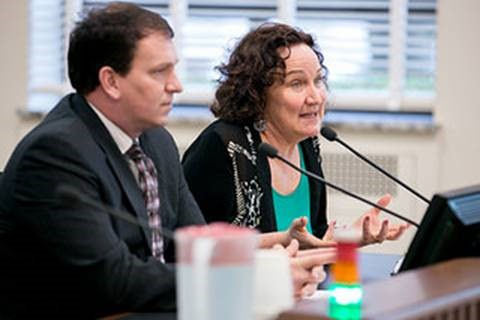A bill sponsored by 12th District Sen. Brad Hawkins to modernize the Running Start Program has taken a key step forward. Senate Bill 5670, allowing 10th grade high school students to participate in online college classes, was approved today by the Senate Ways & Means Committee.
Hawkins’ bipartisan bill was unanimously approved earlier in the session by the Senate Higher Education and Workforce Development Committee, a new committee for Hawkins this year. Senate Bill 5670, as amended in the committee, allows 10th graders to participate in one college course per quarter, if the class is entirely online.
Created in 1990, Running Start is a popular tuition-free “dual credit” program in Washington state that allows high school juniors and seniors to earn college credits while also working toward their high school diplomas. State funding that follows the student is shared between the K-12 school districts and higher education institutions.
Hawkins believes the rationale for only allowing 11th and 12th graders in the Running Start program when it began over 30 years ago had to do with lawmakers likely not wanting to mix high school and traditional college students on campus. Considering how institutions structure classes for Running Start students and the rise of online only classes, Hawkins says it’s time to modernize the program.
“Many classes at community colleges are almost entirely high school students participating in Running Start so allowing sophomores who are academically ready to explore a limited number of online classes would be a very good thing,” Hawkins said.
Hawkins added, “You need to walk before you run, so I call my bill a walking start to Running Start.”
His bill directly aligns with state goals related to post-secondary attainment, which involves students earning credentials beyond a high school diploma. Hawkins said, “Many juniors and seniors work really hard to earn a two-year community college degree by the time they graduate from high school, which can be both overly stressful and impact their social opportunities.”
“Many students work really hard but don’t quite earn their college degree by the time they graduate from high school, yet they never go back to finish due to tuition cost and life circumstances.” He added, “My bill would allow 10th graders to chip away a bit at their two-year degree online and position them better to complete their college program.”
Senate Bill 5670 now heads to the full Senate for consideration.











